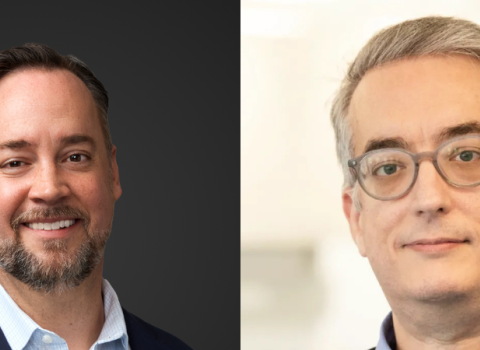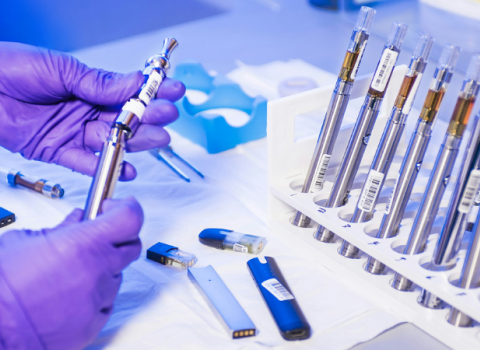
The corporate incubators run by leading biotech company Biogen Idec and pharmaceticals giant Pfizer represent a new route for start-ups to find the seed funding they need to get out of their university base. But beyond this, fledgling companies also get access to the corporate expertise of their foster parents.
Related article
“The beauty of the model is you can have from the start a very clear idea of how much and what it will take to get a compound licensed,” said Bergenhem, the first employee of Escoublac, after three weeks in the job.
Such an alliance can help streamline and shorten the time to get a compound moved forward, because the new company already will have its entire infrastructure, including instruments, in place, alongside Biogen Idec experts to consult.
Bergenham doesn’t see the tie-up with Biogen Idec as limiting the company in the future; Escoublac has licensed the technology from Columbia, and Biogen Idec could decide to license the ultimate compound from Escoublac. If the start up creates a different compound, Biogen Idec may want to license it, or it could go to a third party.
On its Web site, the Pfizer Incubator says it advises entrepreneurs to explore all available funding options, including venture capitalists or angel investors, but that the incubator can be a good fit for companies developing early technology or product concepts that could be transformational.
Higher risk? Sure
Because the incubator is interested in technologies and products rather than focusing only on financial return, it will consider companies or ventures earlier on and thus with higher risk profiles. The Pfizer Incubator plans to invest about $2 million annually on average in each incubated company, and funding will typically be for two years.
The Pfizer Incubator in La Jolla, California, has three occupants currently. The first is Fabrus LLC, a company formed by Baughn Smider, assistant professor at The Scripps Research Institute in La Jolla, California. The company will work to develop technology to identify antibodies that might lead to new therapies. Pfizer will support Fabrus for two years, after which it has an option to acquire the company and its technologies, or the company could spin out on its own.
“The Incubator allows me to focus on science,” says Smider. “We won’t have to devote time to business complexities, like funding, equipment purchase and payroll. We also benefit from our proximity to Pfizer and its considerable scientific resources.”
Two more occupants joined the incubator in January. One, Wintherix, founded by teams from Moores Cancer Center and the University of California at San Diego School of Medicine, will use proprietary biological knowledge to search Pfizer’s compound library for molecules that inhibit the wnt-related signaling pathways involved in the development of cancer cells.
The second, RGo Bioscience, cofounded by Alexander Chucholowski, former president of ChemBridge Research Laboratories, and Thomas Hermann, assistant professor at the University of California at San Diego will research the potential of small molecules to act on ribonucleic acid (RNA) and on novel ways to deliver RNA in the body.
Rainer Fuchs, Executive Director of bi3 says the corporate incubator model may not work for all scientific disciplines, for example clean energy. But he believes it does work well for pharmaceutical companies, which have long and expensive development cycles.
Meet the mentor
While pharma has tried a number approaches to tapping external expertise to fill its drug pipelines, including captive venture capital arms, in licensing, and partnerships with start ups and academics, the incubator model so far brings the parties closer together and provides the start-up with a mentor.
Fuchs says big pharma companies need to new routes to pulling in innovative compounds and admits that at bi3 he “borrowed shamelessly” from a venture capital incubator for startups in Seattle called Accelerator Corp.. Accelerator, headed by noted systems biologist LeRoy Hood provides building space and resources for start-ups and is affiliated with venture capital firms MPM Capital, ARCH Ventures and Amgen Ventures and Hood’s Institute for Systems Biology.
In Fuchs’ view the difference between Accelerator and bi3, is mainly in the expected outcome: Accelerator is based on a venture capital model, so expects follow-on financings and an exit strategy, while bi3 is focused on getting a usable compound.
Meanwhile, US universities, like Boston University, which have started their own incubators typically offer physical office space and access to labs, but they work on traditional funding, such as smaller government grants.
Other approaches to getting access to leading research and researchers include Merck’s deal last fall to fund research on diseases such as cancer and Alzheimer's disease at Harvard Medical School. Under the agreement Merck will supply funds to six laboratories at the medical school to do basic research in oncology and diseases of the central nervous system. In a smaller deal the year before, Merck paid Harvard an initial fee of $3 million for exclusive rights to molecules discovered by Robert Rando to treat macular degeneration and another eye disorders that causes blindness.
But Fuchs claims the corporate incubator concept is more focused and brings the parties closer together. Biogen Idec is investing in a start-up with a particular molecule that it hopes to eventually get through the clinic and into the market. It will participate actively with the start up to get an early stage compound moving forward.
Would a similar model work in Europe? Fuchs believes it could, and there was a lot of enthusiasm about it during a recent trip he made to Germany. “There may be more interest in Europe in this model due to the dearth of venture capital,” he said. “But it’s harder to find the people who will make the jump to start a company.”





 A unique international forum for public research organisations and companies to connect their external engagement with strategic interests around their R&D system.
A unique international forum for public research organisations and companies to connect their external engagement with strategic interests around their R&D system.